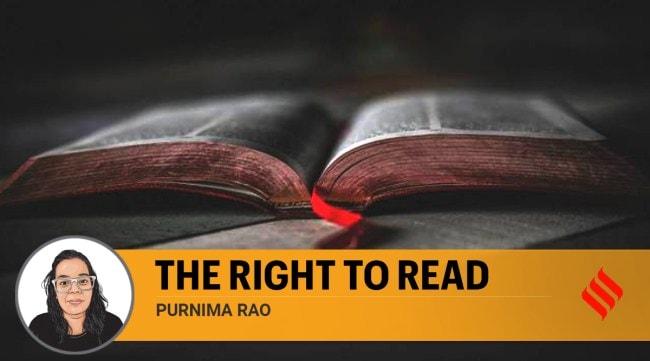Opinion Why libraries are liberating spaces
Whatever one’s identity, everyone deserves the same rights — to live, to dream, to read.
 This idea of a free library exists in sharp contrast to India’s long history of gatekeeping knowledge, where communities have been excluded from reading and learning because they are the wrong caste or gender.
This idea of a free library exists in sharp contrast to India’s long history of gatekeeping knowledge, where communities have been excluded from reading and learning because they are the wrong caste or gender. Baby V, 18 months old, lives in Khirki, Delhi — a largely working-class settlement with low to middle-income families. The street he lives on is riddled with potholes that never get filled and garbage that never gets cleared. He also has a free community library right next door that he saunters into daily. He’s too young to be a member just yet, but he is always welcomed warmly — just like each of the nearly 4,500 library members. No fee is levied and there is no kaagazi barrier to entering this world of reading and thinking.
Inside are librarians who see their job as one of delivering the right to read. The shelves house nearly 10,000 books; accessible to all. Hindi, Urdu and English jostle with Bengali, Dari and Pashto — languages of the community. Members include those who can read and those who can’t, school-goers and dropouts, daily wagers and Booker Prize winners.
This idea of a free library exists in sharp contrast to India’s long history of gatekeeping knowledge, where communities have been excluded from reading and learning because they are the wrong caste or gender. At the same time, the myth that excluded groups have no interest, aptitude or need for reading is so widely perpetuated that India currently has no public library system which proactively invites them. With the majority of Indians left out of reading for generations, it’s no surprise that we find ourselves a billion strong population that cannot discern real from fake information, articulate their oppression within the framework of other oppressions or find freedom in the world of ideas.
The need of the hour is a national library policy to ensure free, accessible and excellent libraries for all.
Under the Indian Constitution, public libraries are a state subject. Nineteen states have passed the Library Legislation Act and five states levy a library cess. In 2013, the National Mission on Libraries came into being under the Ministry of Culture, to revive and modernise public libraries. They have utilised a lion’s share of their budget on creating digital libraries including the National Digital Library of India (NDLI), which barely makes a ripple in a country where digital inequity looms large. There is no move by NML, till date, to bring state public libraries under one policy or address the issues of access to existing libraries.
To add to the chaos, there is wildly conflicting data on the state of the Indian public library system, including how many functioning libraries we have at the national, state and district level. There is no standardisation across public libraries or guidelines to inform curriculum, and best practices. This inaccessible public library system has led to the sprouting of NGO and citizen-led efforts in some of India’s most under-served, remote and neglected regions. But there is no concerted effort to help sustain them.
Today, there is a small but growing group of library workers from all over India coming together to make some noise and campaign for a free library movement. But it’s not the first time this has happened. Since the 1930s, India has seen a wave of free library movements come and go, leaving us with roadmaps waiting to be made into policy. The most recent draft national policy was written in 1986 and it recognised that all public libraries must be free. Though it was never ratified, just last year, it was reviewed by a Rajya Sabha standing committee. Unfortunately, while the committee recognised that libraries were a vital social space and that national policy was needed to marry state legislations into an enforceable tool for reform, inexplicably, it dropped the need for “free”.
So the struggle continues; on the shoulders of Ambedkar, Periyar and the Phules and everyone who fought for knowledge to be free. Winning will require everyone from bookmakers, policy wonks and educators to the public, to join librarians in demanding it. When we win, libraries will belong to all. Through them, Baby V will grow up bound to a collective that thinks freely and makes empowered choices for themselves, their community and their country, sound in the knowledge that no matter one’s identity, everyone deserves the same rights — to live, to dream, to read.
The writer is director of Free Libraries Network FLN, a coalition of over 150 Indian grassroots free libraries in India. This article is part of an ongoing series, which began on August 15, by women who have made a mark, across sectors




